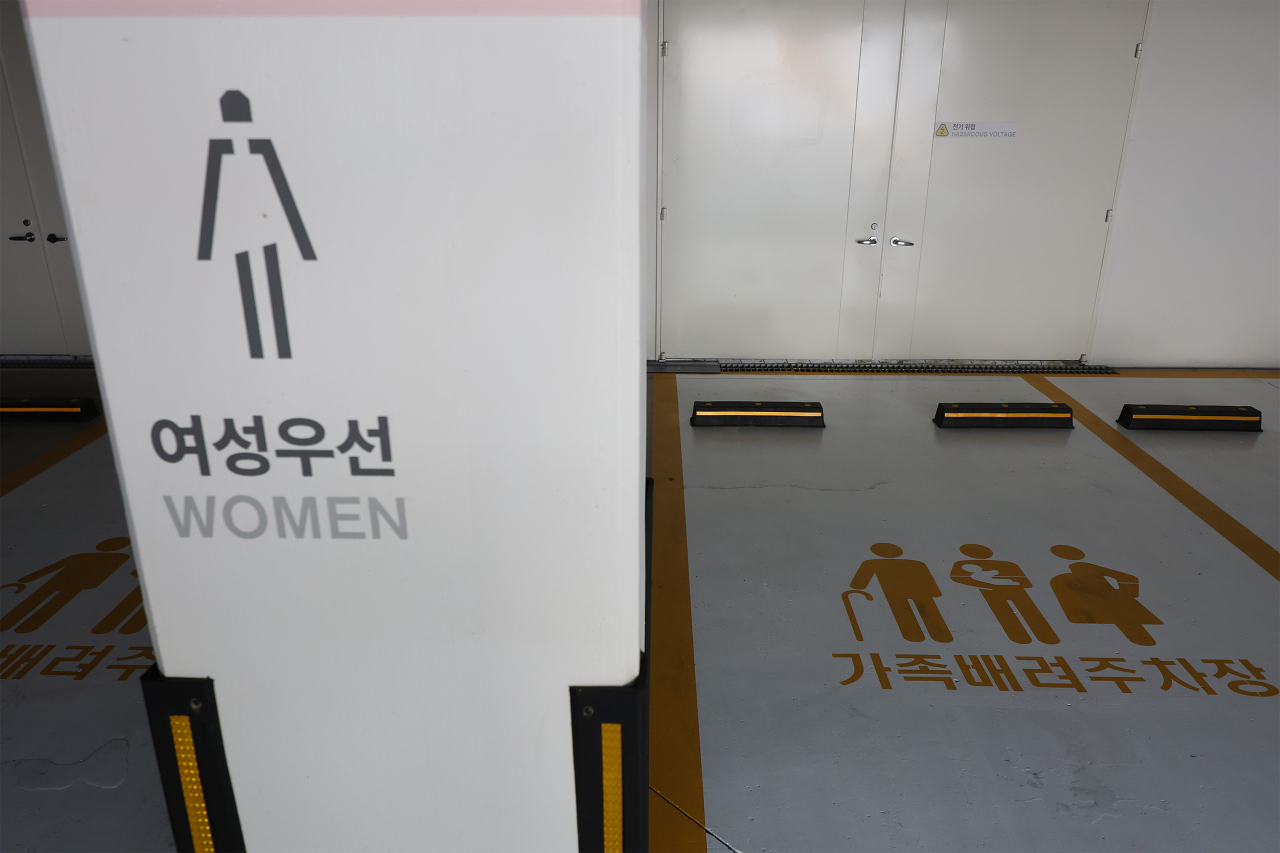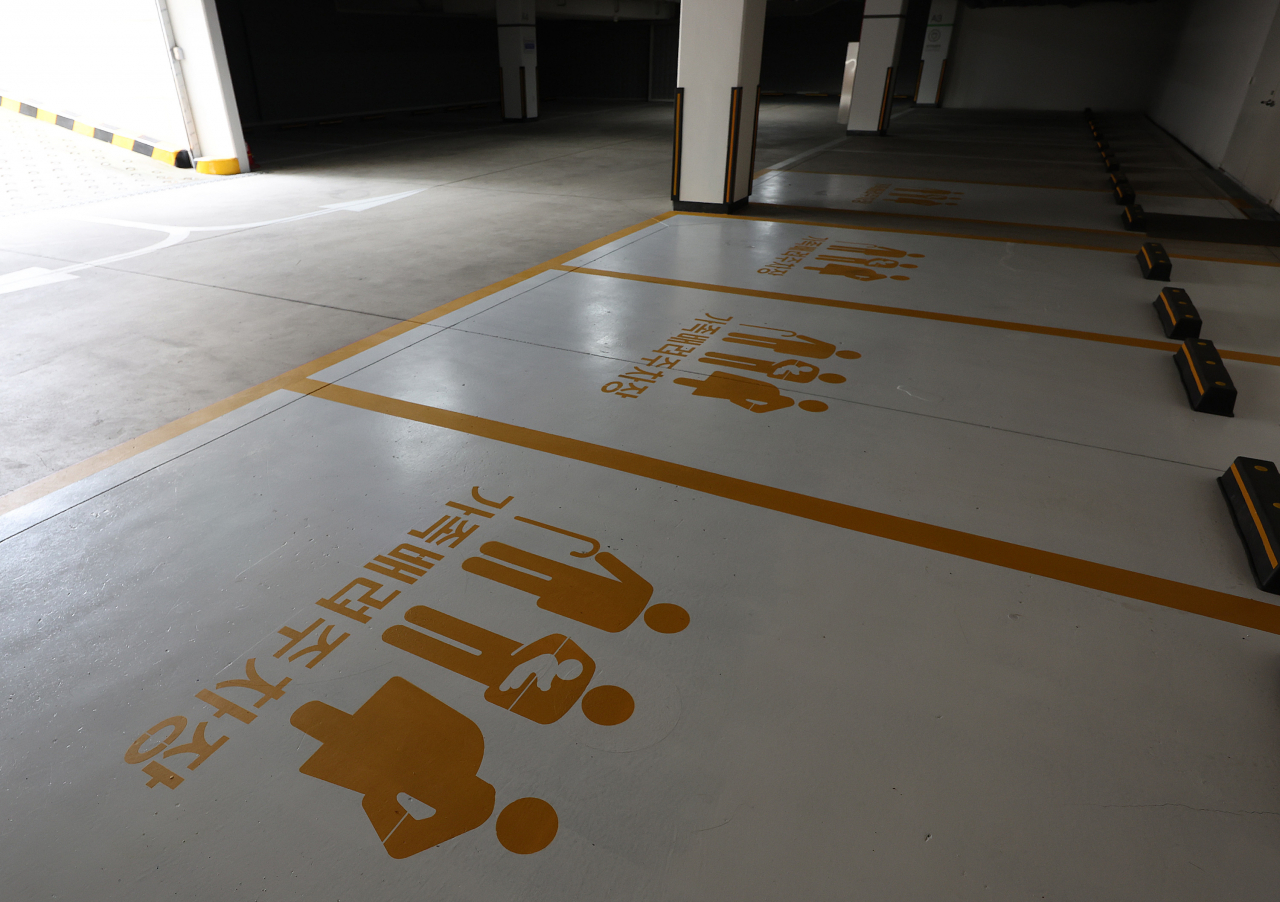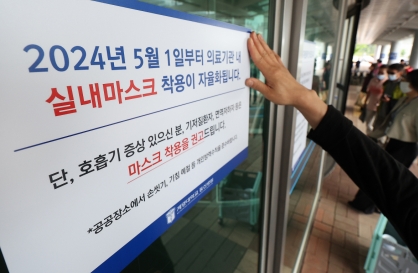
Parking spaces designated for women only, a hotly disputed policy in South Korea, are to be eliminated, the Seoul Metropolitan Government said on Sunday.
The revised bill states that the women-only parking spaces will be changed to "family friendly" spaces starting Tuesday. The new standards for using these spaces will extend to pregnant women, people with mobility difficulties such as seniors and drivers accompanying infants. Women who do not meet the new criteria will no longer be able to use these spaces.
The policy was introduced by Seoul Major Oh Se-hoon in 2009 to ensure women's safety, and involved parking spaces typically near building entrances. According to the policy, parking lots that hold 30 or more vehicles were required to reserve 10 percent of their spaces for women. However, only 16 percent of women were reported to have used the spaces. Women-only parking spaces also faced a backlash as some women protested against the government treating women as needing to be protected.
In August 2022, Oh announced his plan to retract the policy and the city began converting women-only parking spaces to "family-friendly ones in March, starting with public parking lots, which amounted to 69 locations and 1,988 spaces.

The city is planning to designate 795 million won ($628,535) in its revised supplementary budget for the installation of the "family-friendly" parking spaces.
The termination of the women-only parking spaces has also raised concerns regarding women's safety, particularly due to the number of crimes that occur in parking lots. According to a 2021 report by the Korean National Police Agency, 70 percent of the violent crimes that happened in parking lots were sexual crimes.
Nevertheless, the policy sparked claims of "reverse discrimination" against men, which escalated the gender divide, according to local news.
There have been several incidents between women and men arguing over parking in women-only zones, according to local media reports, yet the parking policy is not legally binding, which means that men who park in women-only spaces are not punishable by law.
The underlying issue behind the controversy heavily relates to the lack of available parking spaces in the city.
According to a government report, South Korea has only one-third of the parking spaces per residential property that the US and Japan do. The number of complaints regarding illegal parking is also on the rise, coming to over 1.23 million last year.
The lack of parking spaces is more pronounced in older parts of Seoul, as most buildings were constructed before the use of cars was widespread. Only four districts -- Seocho-gu, Yongsan-gu, Seongdong-gu, and Dongdaemun-gu -- provide one parking space per household.
"Local governments are pushing for regional development through building infrastructure including cultural complexes, where parking facilities will be built in accordance to the increased need for parking spaces," an official from the prime minister's office said.




![[Music in drama] Rekindle a love that slipped through your fingers](http://res.heraldm.com/phpwas/restmb_idxmake.php?idx=644&simg=/content/image/2024/05/01/20240501050484_0.jpg&u=20240501151646)

![[New faces of Assembly] Architect behind ‘audacious initiative’ believes in denuclearized North Korea](http://res.heraldm.com/phpwas/restmb_idxmake.php?idx=644&simg=/content/image/2024/05/01/20240501050627_0.jpg&u=20240502093000)



![[KH Explains] Will alternative trading platform shake up Korean stock market?](http://res.heraldm.com/phpwas/restmb_idxmake.php?idx=644&simg=/content/image/2024/05/01/20240501050557_0.jpg&u=20240501161906)








![[Today’s K-pop] Stray Kids go gold in US with ‘Maniac’](http://res.heraldm.com/phpwas/restmb_idxmake.php?idx=642&simg=/content/image/2024/05/02/20240502050771_0.jpg&u=)